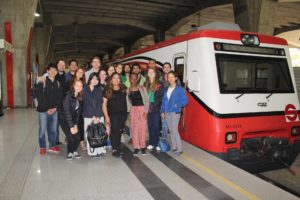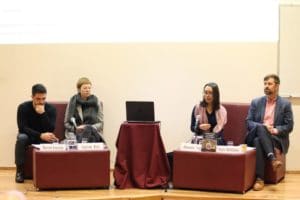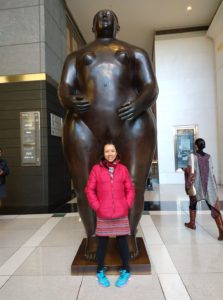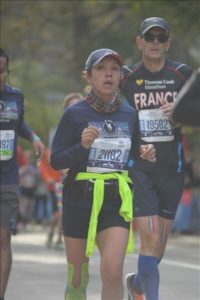Alejandra Trejo is currently a professor in the Centre for Demographic, Urban and Environmental Studies (CEDUA) at El Colegio de Mexico in Mexico City. Alejandra is one of the ambassador to Mexico of the Regional Studies Association (RSA). She is an urban and regional economist whose research agenda reflects significant interdisciplinary concerns about the issues of urbanisation, urban and regional economic development, governance and policy. Her most recent book, “Metropolitan Economic Development. The Political Economy of Urbanisation in Mexico”, underscores the need for urban studies that closely attend to political economic aspects of urban development, addressing the politics involved in economic performance more explicitly. Currently she is editing a book on metropolitan governance and urban services in Latin America, and preparing a joint project on economic regional development, spatial inequalities and emerging patterns of violence in Mexican cities.
In addition to her academic career, she loves travelling, cooking and mapping her morning running routes.
Words of wisdom
Good advice at the right moment can make a huge difference, especially in the early stages of an academic career. In the very early stage of my career, I thought of myself as a “novice” who could not make any impact. But when I started participating in international conferences I realized at all those young researchers who were making huge contributions to debates, theory, policy and practice in regional and urban studies. Then I learnt that you are never too young to make an impact. No matter how old you are, believe you can contribute even if you start small. I also believe that society requires the scientific contributions of women who can make a huge difference in science and higher education.
Coming from a developing/emerging country, where we sometimes lack easy or immediate access to some resources and networks, my advice is that you always look outward, make contacts, engage with global communities and make use of what is around you to solve the limitations you have. And do not worry about international competition, be fearless and pursue your place in the world.
Obviously, it is quite often in academia that things do not work as expected, so it is very important to be ready for the worst and always have alternative plans at hand. As I love running marathons, I like to think of the academic life as a long road where you have to train permanently and be patient, passionate, target oriented and ready to be inspired by others. For regional and urban scientists, inspiration can come from the fact that we can actually impact the lives of people around and very close to us.



